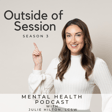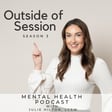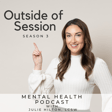
Recovering from Narcissistic Family Systems: Part Two
Today, we’re continuing the conversation from last week on understanding narcissism! If you didn’t get a chance to listen to Part One, make sure you start there!
Today’s episode is Part Two of a two-part series on recovering from narcissistic family systems, and Julie sat down with expert Pamela Madsen to discuss how to redefine your role, set boundaries, and heal your relationship with yourself if you have experienced the difficulties of having a person with abusive narcissistic behaviors in your life.
About today's guest:
Pamela Madsen is a Licensed Professional Counselor, owner, and clinical director for Sea Change Psychotherapy in Buckhead. Pamela specializes in working with adult individuals and couples at the intersection where trauma meets eating disorders, substance use, or anxiety disorders. This often comes along with chronic health conditions, infertility, spiritual injuries, and relationship difficulties. Pamela also works with therapeutic injuries and compassion fatigue. Pamela is trained in EMDR, DBT, Radically Open DBT, and is currently completing Internal Family Systems therapy certification. She has worked at higher levels of care and is a second career professional that comes with understanding workplace performance pressures. Her clients are perfectionists and high achievers who struggle to feel connected to others. Her clients struggle with work-life balance and burnout, have complicated feelings about their family, have difficulty trusting others, and long to finally understand their feelings. Pamela is currently completing her doctorate in counselor education and supervision. She has served on the Diversity and Inclusion Council of Buford City Schools District. She is also an executive board member of the Atlanta chapter of the International Association of Eating Disorder Professionals.
Get in touch with Pamela:
https://seachangepsychotherapy.com/




